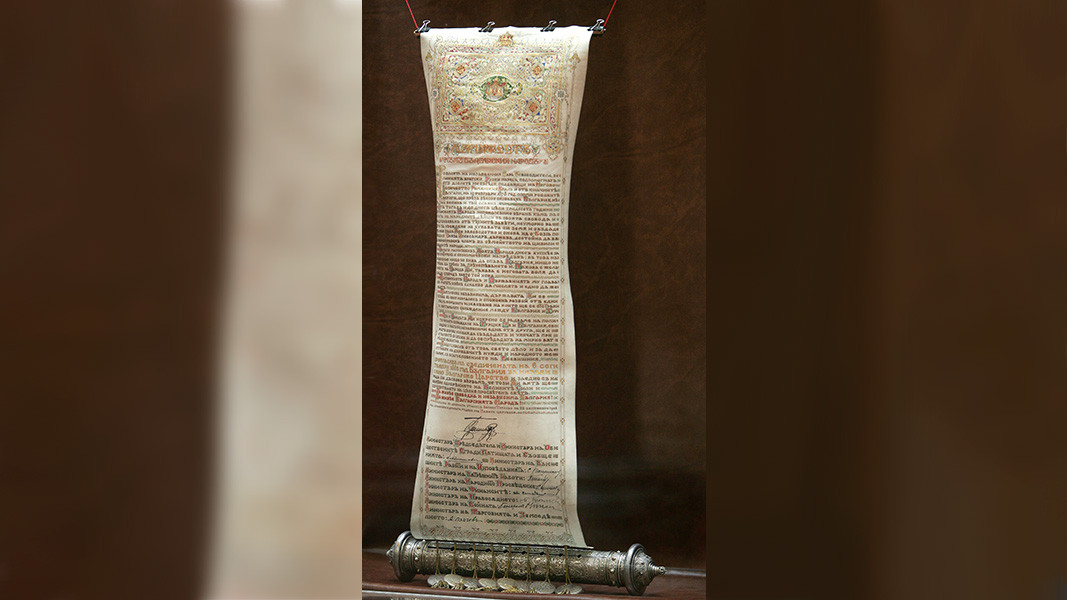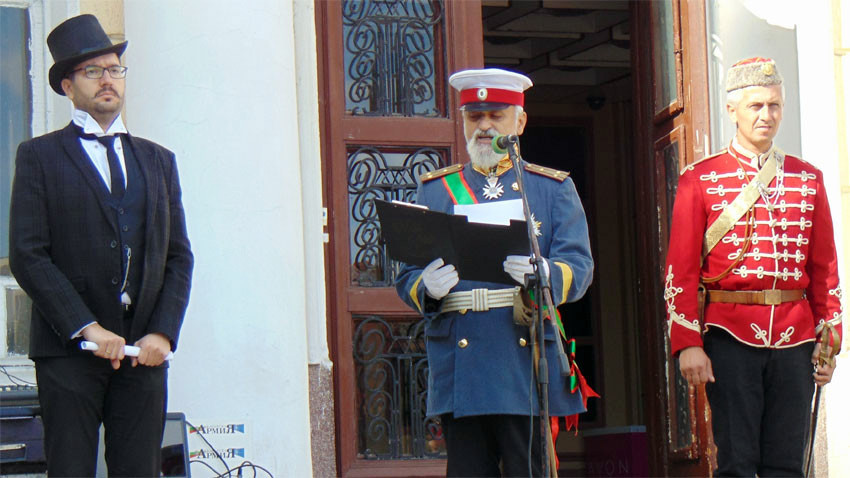On September 22, 1908, three decades after the Russo-Turkish War of 1877-1878, Bulgaria declared its independence from the Ottoman Empire. The desired independence did not happen immediately, because the Treaty of San Stefano (February 19, 1878), which put an end to the Russo-Turkish War and delineated the historical ethnic borders of Bulgaria, was of a temporary nature.
The true fate of Bulgarians was decided a few months later on July 13 in Berlin, where the Great Powers signed a treaty that fragmented the lands inhabited mostly by Bulgarians. Part of the Bulgarian lands – lying between the Balkan range and the river Danube, including the region of Sofia, was named the Principality of Bulgaria. It was a vassal state under the suzerainty of the Ottoman Empire. The lands south of the mountain were given autonomy within the Ottoman Empire under the name of Eastern Rumelia. The regions of Macedonia and Adrianople Thrace were given back to the sultan. Thus, the struggle for national unification and independence became the main objective of the young Bulgarian state in the first decades of its existence. The unification of the Principality of Bulgaria and Eastern Rumelia on September 6, 1885, was the first step in that direction.

Bulgaria was disadvantaged internationally and domestically. It was still legally dependent on the Sublime Porte and suffered a number of restrictions. It remained the only country in the Balkans that had not yet gained full independence. There were several attempts aimed at proclaiming the independence of Bulgaria, but it was not until 1908 that the foreign policy environment favored this important act.
The so-called Young Turk Revolution broke out in the Ottoman Empire. It was then that Austria-Hungary decided to annex the two former Ottoman provinces of Bosnia and Herzegovina, violating the Treaty of Berlin. Meanwhile, the employees of the Oriental Railway, including those within the Principality of Bulgaria, went on strike. There was a general weakness of the then Ottoman regime and the young Bulgarian diplomacy did not fail to take advantage of the situation. The government headed by Alexander Malinov convinced Prince Ferdinand to declare Bulgaria's independence.

The old capital of Bulgaria, Veliko Tarnovo, was chosen as the venue for the event. Prince Ferdinand of Bulgaria, who afterwards took the title "Tsar of all Bulgarians", proclaimed the independence of Bulgaria in the Church of the Holy Forty Martyrs with a manifesto, which was later read out from the historic Tsarevets hill. This act repudiated the last vassal ties with the Ottoman Empire.
The Golden Archive of the Bulgarian National Radio keeps a recording of the Veliko Tarnovo actor Sava Dimitrov, who plays the role of Ferdinand to read the manifesto of independence:

„Inspired by this sacred deed and in order to serve people’s will, with God’s blessing I proclaim Bulgaria, unified on September 6,1885, an independent Bulgarian kingdom. Together with my people I profoundly believe that this act will meet the approval of the Great Powers. Long live free and independent Bulgaria! Long live the Bulgarian nation''.
The independence of Bulgaria, which was solemnly proclaimed in Veliko Tarnovo, was celebrated all over the country on the same day. Especially significant was the celebration in the coastal city of Burgas where the Anthem of Independence was performed for the first time. It was authored by Georgi Shagunov-conductor of the 24th Black Sea Infantry Regiment. However, the anthem was forgotten for many years. It was found in the composer's archives and was brought back to life at the beginning of the new millennium.
The recognition of Bulgaria's independence is a long process and all governments of post-liberation Bulgaria worked for this. After complex negotiations on April 6, 1909, the Independence of Bulgaria was officially recognized by the Sublime Porte. September 22 was declared an official holiday by a decision of the National Assembly of September 10, 1998.
Published an translated by: Kostadin Atanasov
Photos: BTA; BGNES; archive, gabrovo.bgAll Souls' Day (Zadushnitsa in Bulgarian) is an important day for many Christians. On this day, we remember deceased relatives and loved ones. The first of the three All Souls' Days of the year, also known as the Great or All Souls' Day, falls on the..
152 years after Bulgaria lost its beloved son and advocate for a free, independent and tolerant state – Vasil Levski, his personality continues to excite and inspire Bulgarians from all generations. Scholars continue to study the work of the Apostle..
Vasil Levski is a Bulgarian revolutionary and national hero who fought for the Liberation of Bulgaria from the Ottoman Empire. He is an ideologist, founder and organizer of the Internal Revolutionary Organization, for which grateful..
All Souls' Day (Zadushnitsa in Bulgarian) is an important day for many Christians. On this day, we remember deceased relatives and loved ones. The first of..

+359 2 9336 661
